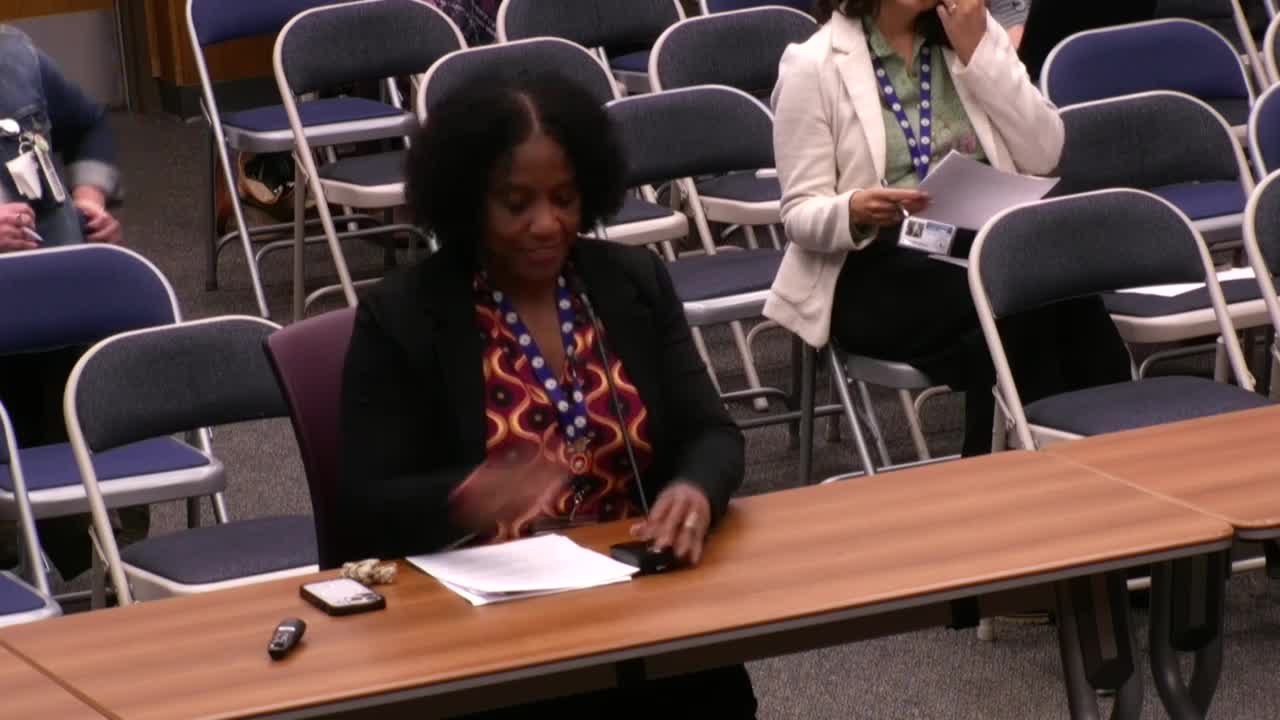Calvert schools to post telehealth policy allowing parent‑initiated virtual visits for grades 6–12
Get AI-powered insights, summaries, and transcripts
Subscribe
Summary
The Calvert County Board of Education reviewed a proposed policy Tuesday to allow parent‑initiated telehealth appointments for students in grades 6 through 12 and agreed to post the draft for public comment for up to four weeks.
The Calvert County Board of Education reviewed a proposed policy Tuesday to allow parent‑initiated telehealth appointments for students in grades 6 through 12 and agreed to post the draft for public comment for up to four weeks.
The policy, presented by Cecilia Lewis, Director of Student Services, responds to state legislation and guidance and would permit appointments between a student and an external provider during the school day when a parent or guardian requests the service. Lewis said the policy is focused on behavioral‑health services intended to reduce travel time and missed instruction.
Lewis told the board the policy aligns with “House Bill 522” and state guidance developed by the Maryland State Department of Education and the Maryland Department of Health. She said the draft allows LEAs flexibility to set local procedures and that Calvert’s will include details on equity and prioritization of access, confidentiality, consent and crisis‑response protocols.
Board members pressed staff on several operational details. Vice President Grenace asked whether a student could participate without parental consent; Lewis replied, “Informed consent is outlined in the policy here, and it’s … the process by which a parent or guardian is given all [information] and voluntarily agree to it,” and confirmed a parent or guardian must sign the consent form before a student participates. Lewis said the district is recommending that “the parent is present throughout that session” in school‑based telehealth to ensure adult supervision and student safety during behavioral‑health visits.
On staffing and logistics, Lewis said the district received no additional state funding to support supervision, so the policy proposes limited weekly scheduling per school and requires parent presence to avoid adding staff duties. She told the board the district will identify a designated, ADA‑accessible space at each school for appointments and coordinate scheduling to avoid testing windows and instructional disruption.
Lewis said crisis management procedures will be included in the operational manual being drafted and that the district will rely on existing behavioral‑threat assessment policy when concerns arise. She also said the district has a medical health officer on staff and partners with licensed psychiatrists at the county health department and other local providers to review protocols.
Board members asked whether parental presence might reduce effectiveness of counseling; Lewis said each case will be assessed by school mental‑health staff and administrators to determine appropriateness. She added the service is intended for low‑to‑moderate needs and is not an alternative to in‑person medical or mental‑health care.
The board did not adopt the policy at the meeting. Lewis said the draft will be posted for public comment for up to four weeks and that the district will finalize procedures, including details on scheduling, consent language, staff roles, space, and crisis response, before bringing a final policy back to the board.
The presentation and discussion are part of the district’s effort to implement state law and expand access to behavioral health while maintaining student safety and instructional continuity.
